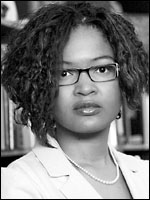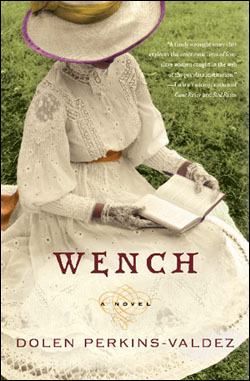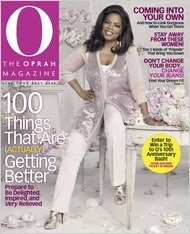Dolen Perkins-Valdez

Dolen Perkins-Valdez's fiction and essays have appeared in StoryQuarterly, Robert Olen Butler Prize Stories 2009, The Kenyon Review, PMS: PoemMemoirStory, North Carolina Literary Review, and Richard Wright Newsletter. Born and raised in Memphis, a graduate of Harvard, and a former University of California postdoctoral fellow, Perkins-Valdez teaches creative writing at the University of Puget Sound. She splits her time between Washington, DC and Seattle, Washington. This is her first novel. This is her first novel.
I had never before considered the subject matter of Dolen Perkins-Valdez' new novel Wench which surprises me because it is a subject matter that definitely has the makings of a great story. And that is exactly what Dolen does, she tells a great story. How she managed to get that story from inside of her head and onto the page is almost as inspiring as her undeniable talent...
DR: Tell me about your book.
DPV: The book is called Wench.
It's set in 1850's Ohio at a resort that became popular among slave holders and their enslaved mistresses. The resort was only open for four years. It eventually closed because the northerners that would come to the resort were offended by the sight of the southerners and their slave entourages. Ohio, of course, was a free state and there were many abolitionists there at the time and they were offended by the presence of these southerners.
When the resort closed it was sold to a group of missionaries who established Wilberforce University which is the oldest predominantly African American University in the country. I couldn't find very much about women who visited there with their slave holders so I decided to imagine myself into what it would have been like to be a slave woman there at that time.
DR: I am fascinated by this subject. I have never heard of anything like this.
DPV: Neither had I...
DR: The dynamic is so intriguing. What was it specifically about this subject matter that drew you in and inspired you to dig deeper and write a book?
DPV: I was really intrigued by the fact that they were in Ohio which was a free state and that they didn't try to escape. My question was:
"Why wouldn't they have tried to escape?"
They had crossed the Ohio River into free territory which many slaves had died trying to cross. Here they were, there on free land, and walking around. I knew of course that you had the fugitive slave act but at the same time many slaves tried to escape despite that legislation. That question led me to the next logical question which was:
"Is it possible that they could have been in love with these men?"
I wondered if it was possible for real love to have existed between a slave and her master.
DR: And what were the answers to those questions?

From Publishers Weekly
In her debut, Perkins-Valdez eloquently plunges into a dark period of American history, chronicling the lives of four slave women—Lizzie, Reenie, Sweet and Mawu—who are their masters' mistresses. The women meet when their owners vacation at the same summer resort in Ohio. There, they see free blacks for the first time and hear rumors of abolition, sparking their own desires to be free. For everyone but Lizzie, that is, who believes she is really in love with her master, and he with her. An extended flashback in the middle of the novel delves into Lizzie's life and vividly explores the complicated psychological dynamic between master and slave. Jumping back to the final summer in Ohio, the women all have a decision to make—will they run? Heart-wrenching, intriguing, original and suspenseful, this novel showcases Perkins-Valdez's ability to bring the unfortunate past to life. (Jan.)
Click here to learn more about Wench and to purchase the book..
DPV: As I drafted the book I began to realize that I was in deeper than I thought I would be because it was a lot more complicated than love. Not only was it more complicated than love, love itself is a very complicated thing.
My main character is Lizzie. Her master had taken her when she was thirteen years old so her relationship with him was not only one of a lover but he was also a father figure as well as the father of her children. There is another character in the book whose master who is sexually involved with her and he is also her half brother.
As the story evolved I began to understand the entanglement they had with these men were extraordinarily complicated as were all relationship in slavery. There were extraordinary complicated attachments that slaves had with their masters but also, that slaves had with one another because of the immorality of the institution and because of the ways in which slavery affected bonds.
The other thing that I learned as a result of writing the book is that there are different kinds of freedom. When you and I think of freedom we think of a person owning their body or owning their labor; having the right to that. But, there is also an emotional or mental freedom that one can attain even if one is a slave.
DR: What do you mean?
DPV: There was a way in which a slave might escape into their mind. There bodies were owned. Their labor was owned. Their spirit could not be owned.
There is something about the human spirit that is indomitable, right? And while that's not always the case, there are certainly instances in which slave's spirits were not owned.
DR: I am just trying to imagine myself in that kind of predicament and wondering about the complexities of love beyond the dynamic of slave master and slave. What I mean is that for these slave mistresses to escape in Ohio, would mean that they would most likely never see their mothers or sisters or best friends again. So the love for their families, or their communities or dare I say their routines and their way of life would have had to have been a serious consideration in trying to decide whether or not to runaway.
DPV: Right. Freedom was a hard choice to make, particularly for women. The fact remains that most escaped slaves were men. It was very difficult for example for women to leave behind their children. That is a huge part of the book – the fact that these women had children back home.
I think when you are talking about love in the context of slavery, it's a very complicated thing, whether it's an attachment to the master or the mother/child attachment. If we think back to what Toni Morrison was exploring in Beloved when she had Sethe kill her baby. She killed her baby out of love. So when we talk about love we are talking about it in a very different context, if that makes sense.
Once I started to delve into the book I discovered that there were many questions that I wasn't able to answer like did Lizzie really love her master? I sort of leave that up to the reader...
DR: ...to fill in that blank for themselves?
DPV: Yes...
DR: Did you find yourself examining parallels and similarities between the choices that your characters make or don't make and the kinds of relationships that we might characterize as abusive today?
DPV: I think that is definitely there and many readers have responded that way. As I was writing, I wasn't thinking about it in such contemporary terms but it is definitely there.
The fact that Lizzie's master takes here when she is just thirteen is definitely predatory. She is so young and he seduces her. People say that these women had been raped but even rape as we think about it in contemporary terms, as sex by brute force, is contorted in the context of slavery because of the extreme imbalance of power. Lizzie is seduced with food that slaves don't normally eat or with cold water...If you think about how child molesters molest children, they seduce them with presents beforehand.
I think that the parallels arise once you read the book and people who are reading are telling me this. Did I consciously think about her being in an abusive relationship when I wrote Wench? No. I actually strived to show that there was something real and pure between them. But the more I wrote, the more I realized that this kind of love couldn't be pure.
DR: I appreciate the fact the complexities because they mirror real life. We spend so much time on the sidelines judging other people's choices which are easy to judge when we are merely observing from the outside. You underscore the reality that life is complicated and nothing is ever cut and dry or black and white. I appreciate the opportunity that Wench provides to examine that.
DPV: It is very easy to simplify even contemporary abusive relationships and just conclude that people should just "leave". There is that impulse as we read to say:
"Lizzie, please walk away from this guy! Why are you staying with him?"
Whether we are considering Lizzie or another relationship, the human need for survival is very strong and again, very complicated.
DR: What did you discover about yourself in writing Wench?
DPV: One of the things about my main character Lizzie that touched me as a person who grew up as a precocious child and an extraordinary reader, Lizzie is also intelligent and she can read and yet she is the most emotionally entangled. As smart as she is she still can't emotionally disentangle herself from this man. That really resonated with me. That kind of irony and contradiction is why I feel so deeply for Lizzie as a character. Many readers are writing me to tell me that they feel very deeply for her too. Their feelings are ranging from anger or sympathy and they are wondering why, if she is so smart, she does some of the things she does. I felt a real connection with that.
DR: Is there anything in particular that you hope readers walk away with after having read Wench?
DPV: I try to leave the questions unanswered so that people can come to their own conclusions about certain questions that I raise. I really just want people to have a good read and to be entertained. That is why I didn't want to be didactic. If readers walk away answering some questions for themselves, the same questions that I asked when I began to write the book, then I'm glad. I hope they will walk away thinking about those questions in ways that they haven't thought about them before and to consider what it would have been like to be a slave woman at that time.
DR: I can see this being an absolute smash hit of a movie. I am thinking about when Roots aired during which slavery was a dominant conversation all over the country. Slavery is something that we do not talk about in this country and that frustrates me because I think that there is some real healing that can begin through honest conversation which would allow for us to move on. All that to say, Wench: the Movie offers another opportunity for us to take another look, and a different look at slavery and to engage in a new conversation. What has the response been like for you along the lines of race?
DPV: Most of the responses have been responses of the heart. I have had some responses from people who have had stories passed down in their families about their great, great grandmothers being the mistress of the slave owner and just bringing up kitchen table conversations around that. We all read the story about Michelle Obama's great, great grandmother who was the mistress of her slave owner...
The response has been overwhelmingly positive. I am getting emails about how much people love the characters and the story. I was in Memphis recently for a book signing and I had a huge crowd and an older Black woman, who bought the book for me to sign said to me:
"Tell the story because we remember"
When I looked up she had walked away.
I definitely think that this is an aspect of slavery that has not yet been talked about.
DR: Exactly.
DPV: Although it has been talked about in very simplistic ways. When we have talked about it we have assumed it was just rape. When we look at the Sally Hemings Thomas Jefferson relationship, for example, we think of it as being completely unusual when in fact that kind of relationship was a very common thing. Not everyone was a prominent national figure and not every slave woman got the privileges that Sally Hemings was afforded...It's just very complex.
I definitely think there is an opportunity to talk about this in a way that acknowledges the past and that acknowledges that this happened. In the book I also try to show how slave women were not just vulnerable with regard to their owners but that they were just vulnerable in general. Slave women were vulnerable to other slave men. They were vulnerable. They had no rights to her chastity.
DR: Hmmm...Never thought about it like that either...
DPV: I am open to any conversation that Wench provokes that is fruitful. I do think that it is a book that every young woman should read.
I was at a high school in Memphis talking to girls about the history of the stereotype of Black women as being hyper-sexualized and none of them knew about this stereotype. They were riveted. I talked to them about how they represent themselves and how they can reject the stereotype .
To the extent that anybody is talking about things that they haven't talked about before, that is a good thing in whatever form it takes, whether that's the sexual stereotypes of Black women or interracial relationships, etc. Dialogue is good.
DR: What is next for you?
DPV: I haven't come up with an idea for my next project yet because when I did have some down time I wasted it. (Laughs)
The book is in its fourth print now and doing very well...
DR: Congratulations...
DPV: It's been amazing. But soon, I know my agent will be asking about what is next...
DR: I have to ask how you kept yourself motivated to finish. I imagine it wasn't easy.
DPV: Every little chance I had I wrote something down.
I had a full time job while I was writing this book, a one hour work commute and I was pregnant and then nursing.
We all have our daily commitments that we have to work around. Don't feel like you have to sit down at your desk from 9:00 in the morning to 3:00 in the afternoon. If you grab 15 minutes before dinner or 20 minutes while you are in the doctor's waiting room, you'll get it done. Those moments add up. Cobble together those little bits here and there and don't talk the energy out of your project. Just do it!
DR: A hundred years from now what do you want to be remembered for?
DPV: One of the things that drove me while I was writing this book is that my daughter would have this book. As a writer and a lover of literature I would give anything to have a book that my grandmother wrote. I wonder if my grandmother had journals for instance. I wonder what her thoughts were.
My hope is that my family will have a legacy of me as a grandmother or a great grandmother who wrote. I want my family to have something to remember me by. That is the thing that I'd like to leave on the planet.
Thanks Dolen!
Wench in O, The Oprah Magazine
February 2010

Check out the February 2010 issue of O, The Oprah Magazine
for a mention of Dolen Perkins-Valdez's debut novel WENCH
in the Books Section!
WENCH is listed as #1 of "Ten Titles Coming This Month."
